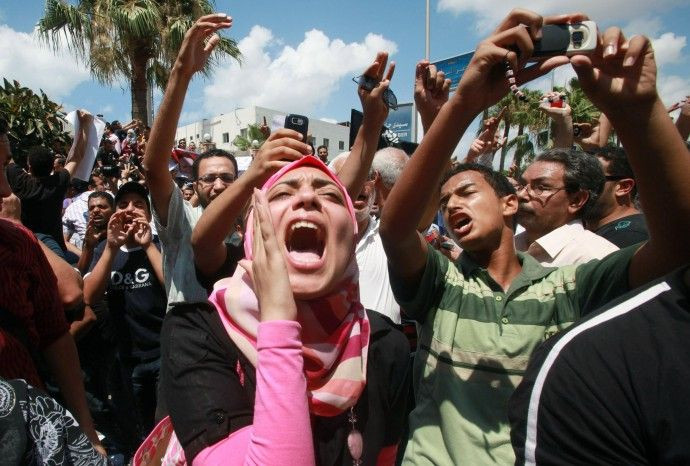'Democratic Gap' May Have Predicted Egyptian Unrest

While the unrest in Egypt took a lot of people by surprise, there were two political scientists who might say we told you so.
Prof. Tamir Sheafer and Dr. Shaul Shenhav of Hebrew University took polling data from 90 countries, and compared it with data on how democratic those countries are (or are not). They came up with a quantity called the democratic gap which is the difference between how democratic a country is with the aspirations of the people.
A negative gap means the country is less democratic than the people want, while a positive gap means the country offers greater political freedom than the population asks for. A country with a wide negative gap is one that they say is headed for unrest, while a one in which the gap is narrow is more stable.
To measure the attitude of a people towards democratic norms the researchers relied on the World Values Survey, which polls people around the world. The measured how democratic a country is by looking at reports from organizations such as Freedom House and Human Rights Watch.
The method doesn't make exact predictions, but can offer a guide to the likelihood that something will happen. It's like predicting earthquakes, Sheafer said. One can say that one area is more likely to have one, but it is impossible to say exactly when.
Sheafer says the value of the scale is that it measures each country relative to what people there want, and not what many in Western nations might see as ideal. Thus far the concept seems to hold up well, he says. There are four countries with large democratic gaps in the study - China, Thailand, Iran and Egypt - and three of them have gone through periods of civil unrest.
Some countries with large gaps such as Saudi Arabia, Rwanda, Singapore and Belarus all are candidates for future civil disturbances, Sheafer says. By contrast, while there are demonstrations happening in Jordan, Sheafer said that country actually offers its citizens a greater level of democratic control than they have said they want and the protests there have been on a much smaller scale than in Egypt.
There are countries that have undergone unrest recently that are not in the survey, such as Tunisia and Syria. I'd love to have data from Syria, Sheafer said.
He cautions that the democratic gap is only one of many factors that predict stability or instability. The response of a regime to demands for change can be just as important. . A regime that reacts violently to protests may cause greater instability than would be predicted by this method. We don't know what would have happened had the Egyptian government cracked down on the first day, Sheafer said.
To contact the reporter responsible for this story call (646) 461 6917 or email j.emspak@ibtimes.com.
© Copyright IBTimes 2024. All rights reserved.





















